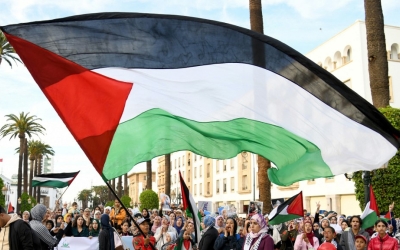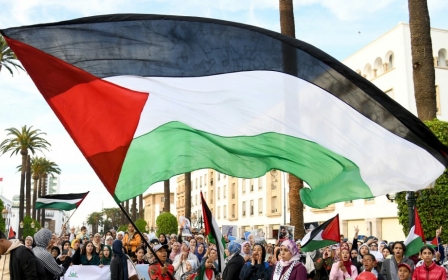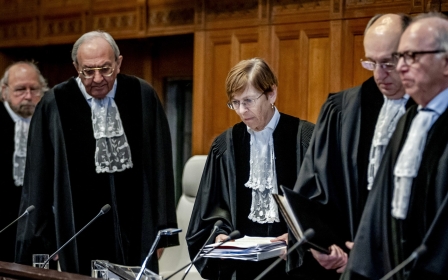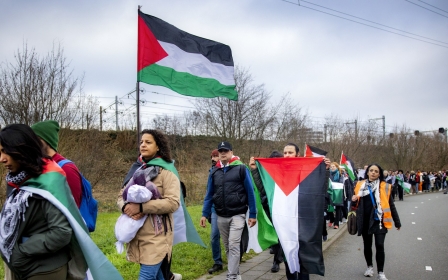Gaza war: Why did Arab states not join South Africa's case against Israel in the ICJ?
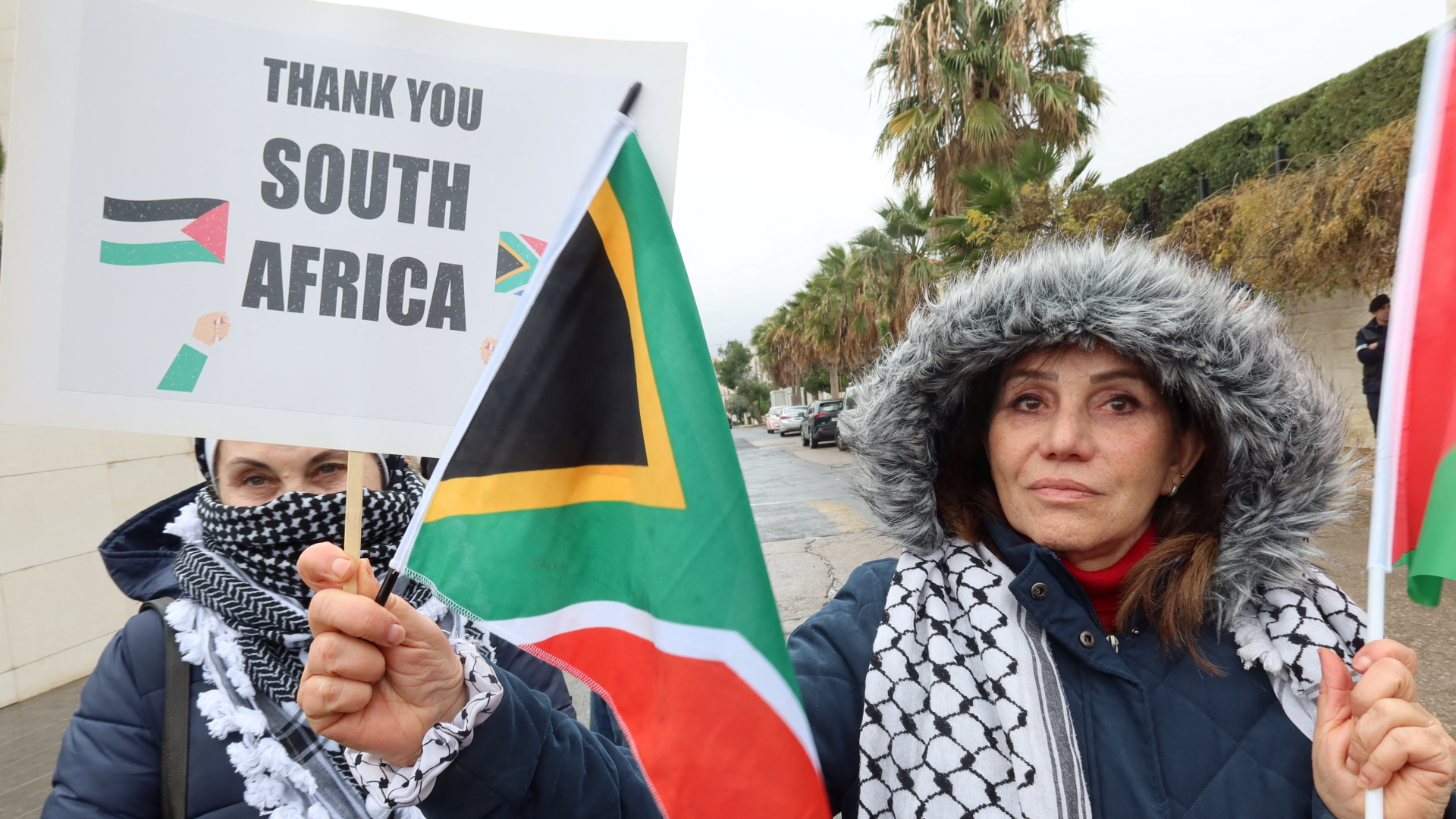
Last Friday, the International Court of Justice (ICJ) concluded the first hearing of the South African case against Israel, in which Pretoria accused Tel Aviv of the intent to commit genocidal crimes against the Palestinians in Gaza.
The case has raised a debate in the Arab world about why Arab states did not join South Africa in this case and why they did not file a similar case in the ICJ or the International Criminal Court (ICC).
According to the ICJ's statute, all UN member states can file cases against any state. Any Arab state could have filed a case against Israel in the ICJ or at least asked South Africa to join its case before it was officially filed on 29 December.
South Africa recognises in its case documents its "obligation" to enforce the "Genocide Convention" as a State party to the convention to prevent genocide. In the same vein, 19 Arab states that are parties to the Genocide Convention could have similarly invoked their status and filed cases against Israel in the ICJ.
New MEE newsletter: Jerusalem Dispatch
Sign up to get the latest insights and analysis on Israel-Palestine, alongside Turkey Unpacked and other MEE newsletters
This includes Egypt, Saudi Arabia, Algeria, Tunisia, Jordan, UAE, Syria, Somalia, Sudan, Iraq, Oman, Kuwait, Lebanon, Libya, Morocco, Yemen, and the Palestinian Authority (PA).
So, why did Arab states not take any action?
Compromised positions
Many Arab states might claim they have a "reasonable" explanation to avoid such an aggressive move. Some may claim that they are small countries with economies too weak to bear the consequences.
Others, like Tunisia, might even claim that they could not sue Tel Aviv, as they do not recognise the state of Israel - although the Tunisian president told the parliament speaker last November that he opposed a bill aimed at criminalising "normalisation" with Israel because it would harm Tunisian interests.
However, this would not apply to countries with stronger economies and more influence, like Saudi Arabia and Egypt, who have reasonable grounds to move against Israel in the ICJ.
The first reason that could explain the Egyptian and Saudi position is the fear of potential consequences from the US. Most Arab states believe that they can't defy the American stance on issues related to Israel.
Follow Middle East Eye's live coverage of the Israel-Palestine war
Indeed, Egyptian President Abdel Fattah el-Sisi took every possible step to bolster ties with Israel because of his belief that Tel Aviv played a significant role, alongside Saudi Arabia and the UAE, in convincing the Obama administration not to object to the coup he led in 2013.
Saudi Arabia was also in the process of negotiating a deal with Israel to normalise their relationship in exchange for a special US defence pact.
Due to their severe violations of international human rights law, Arab governments would not face Israel before the ICJ or ICC to avoid facing similar charges
Although Saudi Arabia and Egypt have defied the US in the last few years on issues like Opec oil production and relations with China and Russia, both are unwilling to do so in matters related to the Israeli-Palestinian conflict because they believe that this would be a "red line" in the American prospect.
The atrocious human rights records of most Arab states offer another explanation for their reluctance to join South Africa in its case against Israel. They fear that taking on Israel before the ICJ could result in being taken to the ICJ or ICC by Israel or one of its allies.
Both Saudi Arabia and Egypt, and indeed most Arab countries, can be accused of committing many types of human rights violations. Egypt imprisons thousands of politicians and activists for fabricated charges by a corrupted legal system.
Moreover, Egyptian authorities were accused by many activists and human rights organisations of killing, detaining and forcing the displacement of the people of Sinai after demolishing hundreds of homes under the guise of fighting terrorism.
Saudi Arabia similarly executed a crackdown on activists, reformists and opponents. Thousands were held arbitrarily without proper trials, some of whom were sentenced to death for just a tweet. Saudi Arabia has also been accused of serious war crimes in Yemen.
Due to their severe violations of international human rights law, Arab governments would not face Israel or any other state before the ICJ or ICC to avoid facing similar cases before these international courts.
No support for Palestinians
The third explanation for the stance of Arab states towards South Africa's case against Israel is simply that they are not willing to show real support for the Palestinians in Gaza.
All Arab countries, including Saudi Arabia and Egypt, have issued many statements condemning Israel's assault on Gaza, but they did not take any further action. Saudi Arabia and the Arab League waited for more than a month of onslaught in Gaza to hold a summit in Riyadh to discuss the issue.
The summit decided to break the siege and blockade, but Arab countries never turned this resolution into action. Instead, Egypt obeyed Israeli commands and refused to give access to move injured civilians for treatment outside of Gaza unless Israel approved their names.
Media and eyewitnesses confirmed that Egyptian brokers forced Palestinians in Gaza to pay up to $10,000 as bribes to officials to obtain access through Rafah Crossing. Egypt also agreed to send all aid trucks to be checked by Israeli security at the Karm Abu Salem commercial crossing, which caused delays in the arrival of aid and complicated the humanitarian crisis in Gaza.
Egypt justifies its position by saying that it would risk the bombing of the trucks by the Israeli Air Force if they were not sent through the Israeli checkpoint. Meanwhile, an Israeli lawyer before the ICJ claimed that Egypt was responsible for the Rafah crossing and for preventing aid vehicles from entering Gaza.
Although Israel threatened to attack any aid entering Gaza without its permission, Egypt can only respond to Israel's accusations against it by opening the borders for injured people and patients to exit and for aid and commercial trucks to enter and prove that Israel was responsible for the disaster.
The Arab League summit in Riyadh voted to break the siege and blockade, but Arab countries never turned this resolution into action
Despite the Arab governments' rhetorical support for Palestinians, Dennis Ross, the former US envoy to the Middle East, claimed that every single Arab official he had known told him that "Hamas must be destroyed". After more than 100 days of its assault on Gaza, it is abundantly clear that for Israel, destroying Hamas means destroying Gaza and its people.
I was part of the massive crowd outside of the ICJ in the Hague during the historic hearing against Israel. Hundreds of thousands of demonstrators of all ages, faiths, and backgrounds braved the cold weather for two days. Their main message was to thank South Africa for bringing justice to Israel. They applauded the South African delegation in every possible way. The South African delegation was honoured as deserved.
No Arab country stepped in to achieve this historical honour, as none dares to defy the US. Instead, they have a shameful history of human rights violations and are waiting for Israel to accomplish its mission of the destruction of Gaza.
The views expressed in this article belong to the author and do not necessarily reflect the editorial policy of Middle East Eye.
This article is available in French on Middle East Eye French edition.
Middle East Eye delivers independent and unrivalled coverage and analysis of the Middle East, North Africa and beyond. To learn more about republishing this content and the associated fees, please fill out this form. More about MEE can be found here.



